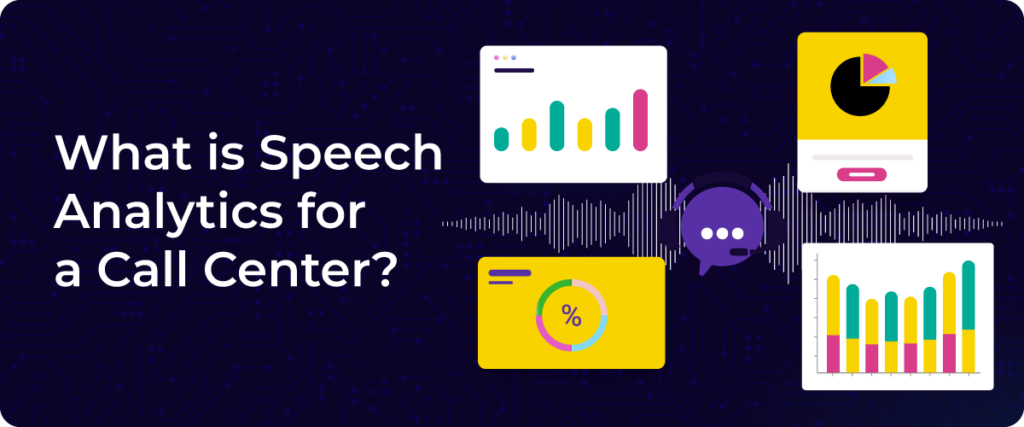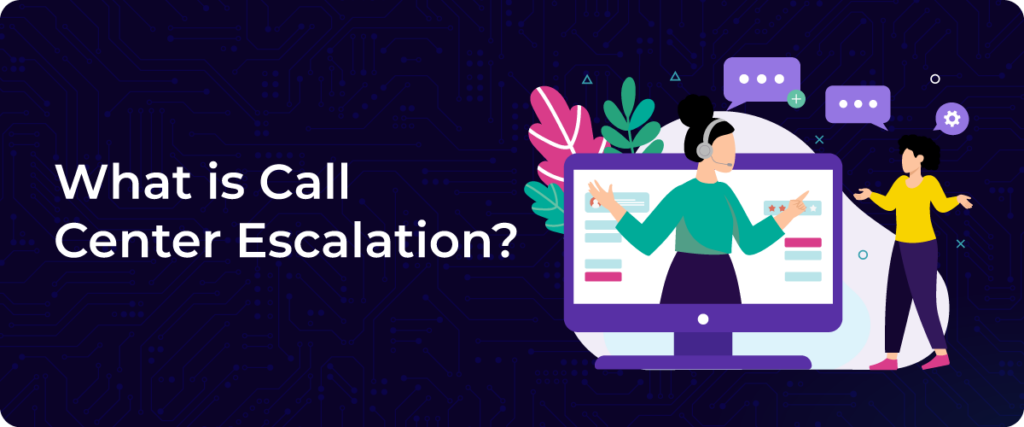Healthcare call centers are at the heart of patient communication, making every interaction an opportunity to build trust and provide seamless care. Optimizing these centers not only improves efficiency but also enhances patient satisfaction.
By adopting smart strategies and leveraging the expertise of healthcare call center companies, organizations can transform their operations for lasting success. Let’s dive into why optimization matters and how to get started!
The Blog shall follow the outline mentioned below:
- Understanding Healthcare Call Center Metrics
- 7 Best Healthcare Call Center Practices
- Crafting an Effective Healthcare Call Center Script
- Exploring Healthcare Call Center Solutions
- Learning from Healthcare Call Center Conferences
- Highlights
Understanding Healthcare Call Center Metrics
| Metric | Definition | Ideal Value for Healthcare |
| Average Handling Time(AHT) | Average time spent resolving a call, including hold time and talk time. | 3-4 minutes |
| First Call Resolution(FCR) | Percentage of issues resolved during the first interaction. | 70%-85% |
| Speed to Answer | It refers to the average time patients wait in a queue before an agent picks up. | 3 minutes 22 seconds |
| Hold Time | The length of time the patients are put on hold by agents. | 1-3 minutes |
| Transfer Rate | The percentage of calls transferred from one agent to another or a different department. | 29.4% |
While all these healthcare call center metrics are important, all of them boil down to one metric ‘Patient Satisfaction.’ Patient satisfaction is the cornerstone of a successful healthcare call center reflecting the quality of care and service.
High satisfaction levels build trust, enhance patient retention, and encourage positive word-of-mouth referrals. It ensures that patients feel heard, valued, and supported, fostering long-term relationships. Ultimately, satisfied patients are more likely to adhere to medical advice and engage actively in their care, contributing to better health outcomes.
7 Best Healthcare Call Center Practices
By following the below-mentioned healthcare call center practices patient satisfaction can be significantly increased.
- Offering Multichannel, Multilingual Support
Providing support across various communication channels including mail, calls, and more.
In Countries like India where there is a mix of diversity and languages it is always best to provide support in multiple languages. Multichannel and multilingual support are the way to cater to diverse patients’ preferences and needs.
- Implementing Technology
Call centers can use AI, CRM systems, and automation to streamline operations and enhance patient experiences. ConvoZen’s intelligent conversational AI can handle complex interactions, provide insights, and improve engagement, ensuring seamless, patient-focused service.
Learn more about it here.
- Empathetic Communication
Training agents to listen attentively and respond with empathy, ensuring that patients feel valued and understood.
- Implementing Self-Service Options
Self-service options like appointment scheduling, downloading invoices, and automated information services can reduce call volumes and let agents focus only on the issues that require more attention.
- Providing Continuous Training for Agents
Offer ongoing training programs to keep agents updated on best practices, communication skills, and system upgrades, ensuring consistent service quality.
- Acting on Patient Feedback
Implement feedback mechanisms to gather patient insights and make necessary improvements, demonstrating a commitment to patient-centered care.
- Monitoring and Analysing Call Metrics
Regularly assess performance metrics to identify areas for improvement, ensuring high service standards and patient satisfaction. Monitor and analyze call center metrics with ConvoZen’s AI-driven insights, which track agent performance and patient sentiment in real time.
Learn more about customer service skills here.
Crafting an Effective Call Center Script
A good healthcare call center script helps keep conversations smooth, clear, and patient-friendly. With the right approach tailored to each call type, you can make every interaction effective and stress-free.
1. Patient Support Call Centers
Start with warmth and empathy to make patients feel comfortable. For example:
- Opening: “Hi, thanks for calling [Healthcare Provider]! How can I help you today?”
- Next, verify details politely: “Could you confirm your name and date of birth so I can pull up your records?”
- Then wrap up clearly: “I’ve booked your appointment for [date/time]. Is there anything else I can assist you with before we end?”
2. Insurance and Billing Call Centers
Focus on being clear and transparent. For instance:
- Start with a friendly tone: “Hello! You’ve reached the billing team at [Healthcare Provider]. Can I have your policy number to get started?”
- Transition to explanations: “From what I see, your insurance covers [amount], and your out-of-pocket cost will be [amount]. Does that sound okay?”
- Finish with assurance: “I’ve emailed all the details for your reference. Let me know if there’s anything else!”
With conversational scripts like these, patients feel heard, supported, and confident in the service they’re receiving.
Exploring Healthcare Call Center Solutions
Below are some of the best solutions to help transform your healthcare call center into a highly effective and patient-centric hub.
1. Adopt Technology-Driven Solutions
The integration of advanced technologies can enhance operational efficiency and elevate patient satisfaction. Key technologies to consider include:
- AI and Automation: AI-powered virtual assistants and automated systems can handle routine inquiries, freeing up agents to focus on more complex patient needs.
- Omnichannel Platforms: Allow patients to communicate seamlessly across multiple channels—phone, email, chat, and social media—ensuring consistent service regardless of the medium.
- Specialized Tools Like ConvoZen: ConvoZen provides tailored solutions for healthcare call centers, leveraging AI-driven insights to streamline workflows and improve the overall patient experience. It excels in real-time analytics, enabling call centers to identify areas for improvement quickly and adapt to changing demands.
Learn more about tools and solutions here.
2. Implement Integrated Systems for Seamless Communication
Disconnected systems can create silos that hinder communication between departments and with patients. Integrated call center solutions offer:
- Unified Communication Channels: Ensure that patient information is accessible across all touchpoints to provide consistent and accurate responses.
- Real-Time Collaboration: Empower agents with tools to collaborate with healthcare providers or access EHRs (Electronic Health Records) during calls, reducing delays and errors.
- Enhanced Data Security: Compliance with healthcare regulations like HIPAA (Health Insurance Portability and Accountability Act) while ensuring seamless data sharing.
3. Tailor Solutions to Your Organization’s Needs
Not all healthcare call centers have the same requirements. Assess your unique needs and challenges to select the right tools and practices.
- Scalability: Ensure that the solutions can scale with your organization as patient demands grow.
- Customizable Features: Solutions like ConvoZen allow for customization to match specific workflows, enabling a personalized approach to patient support.
- Training and Support: Equip your agents with the necessary skills and tools through ongoing training programs and a robust support system.
By embracing technology, fostering seamless communication, and customizing solutions to your organization’s needs, you can transform your healthcare call center into a vital asset for improving patient care and satisfaction.
Tools like ConvoZen play a pivotal role in achieving these goals, offering state-of-the-art capabilities tailored specifically for the healthcare sector. Know more about it here.
Learning from Healthcare Call Center Conferences
Attending industry conferences and workshops is a powerful way to empower your customer agents and elevate the performance of your healthcare call center. These events offer invaluable opportunities to stay ahead in a competitive field, adopt innovative practices, and foster professional growth.
1. The Value of Attending Conferences and Workshops
Conferences provide a platform for healthcare call center agents to:
- Stay Updated on Industry Trends: Learn about the latest developments in patient engagement, call center technologies, and regulatory compliance.
- Enhance Skills and Knowledge: Gain practical insights from expert-led sessions, improving agent performance and confidence.
- Discover Best Practices: Access proven strategies that leading organizations use to optimize call center operations.
2. Conferences to Attend
All the below-mentioned conferences happen every year and can be a great opportunity to learn and grow.
- HCCT: Healthcare Call Center Times focuses on best practices, patient engagement, and technology integration in healthcare call centers. It highlights CRM systems, AI tools, and KPI tracking to enhance efficiency.
- Arab Healthcare: It covers healthcare innovation and technology in the Middle East, emphasizing telehealth, multilingual support, and integrating EHR systems into patient services.
- JP Morgan Healthcare Conference: A leading event showcasing healthcare investment trends, innovations, and business strategies, with implications for call centers supporting healthcare organizations.
- TriZetto by Cognizant: It centers on healthcare IT solutions like automated billing, claims management, and patient data systems, crucial for streamlining call center operations.
- AHIP Consumer Experience & Digital Health Forum: Explores digital health and consumer experience strategies, focusing on call center techs like AI chatbots and personalized patient support tools.
3. Networking Opportunities with Industry Professionals
Conferences bring together a diverse group of healthcare call center leaders, agents, and technology providers. These interactions enable:
- Knowledge Sharing: Exchange success stories, challenges, and solutions with peers.
- Building Professional Relationships: Forge partnerships that can lead to collaborative innovations or mentorship opportunities.
- Identifying Future Trends: Gain unique perspectives on what’s next for healthcare call centers.
By investing in conferences and workshops, healthcare call center agents can unlock their potential and bring fresh, innovative approaches back to their organizations.
These experiences not only improve individual performance but also help transform call centers into dynamic, patient-focused hubs of excellence.
Key Highlights
- Transforming healthcare call centers requires a focus on key metrics like Average Handling Time and First Call Resolution, with the ultimate goal of improving patient satisfaction.
- Best practices include adopting multichannel, multilingual support, empathetic communication, and leveraging technology like ConvoZen’s AI-driven solutions.
- Regular training, patient feedback, and effective call scripts further enhance service quality. Attending industry conferences provides insights into emerging trends, fosters networking, and equips agents with strategies for delivering exceptional patient care.
- By implementing these strategies, call centers can become dynamic hubs for seamless and patient-centric healthcare service.
Frequently Asked Questions (FAQs)
- What is Good Customer Service in Healthcare?
Good customer service in healthcare involves providing empathetic, timely, and efficient support, addressing patient needs effectively, and ensuring a seamless, patient-centered experience across all interactions.
- What is the Patient Satisfaction score?
The Patient Satisfaction Score is a metric that measures how well a healthcare provider meets patients’ expectations, reflecting their overall experience and satisfaction with the care and services received.
- What is medical billing BPO?
Medical Billing BPO refers to outsourcing medical billing and coding tasks to specialized third-party providers, helping healthcare organizations streamline revenue cycle management and focus on core patient care.
Unleash Your Contact Center’s Potential Today! 👉 Get Started with ConvoZen.AI and Elevate Customer Experience.


